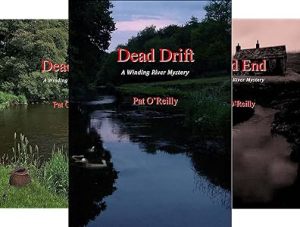Spanish Festoon - Zerynthia rumina
Phylum: Arthropoda - Class: Insecta - Order: Lepidoptera - Family: Papilionidae
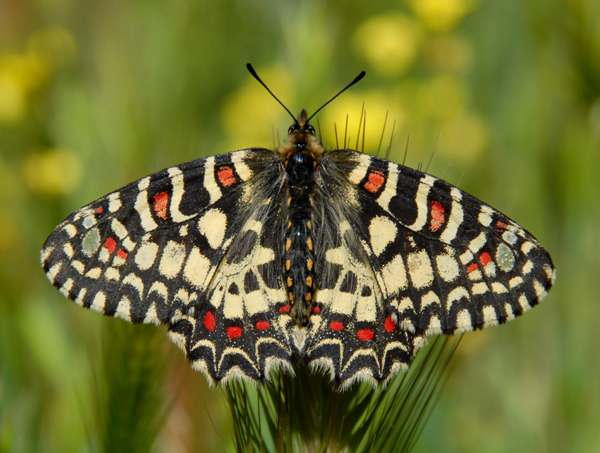
When seen at rest, when its wings are nearly always held wide open, the Spanish Festoon is a truly magnificent sight. Often the red patches on the wings are more strident than those on the specimen shown here, and that clearly distinguishes it from the Southern Festoon, which occurs in France and other parts of central Europe. (The Southern Festoon has virtually no red on its forewings and, unlike the Spanish Festoon, it has blue on its hindwings.)
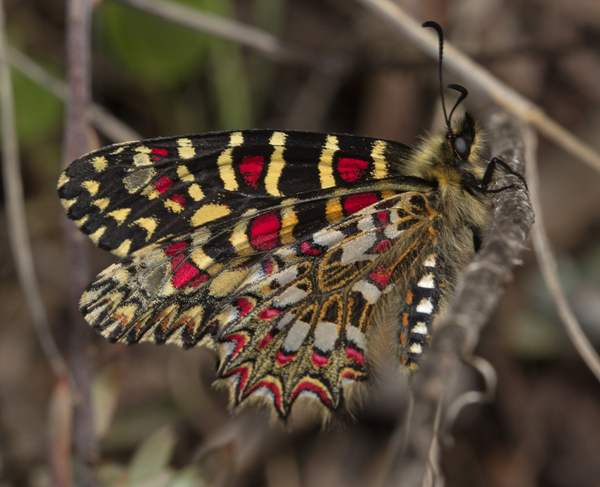
Distribution
Apart from the south of France, in Europe this colourful butterfly is confined to Spain and Portugal; its southern range extends well in to the northern countries of Africa. Its preferred habitat is scrubby grassland and woodland clearings.
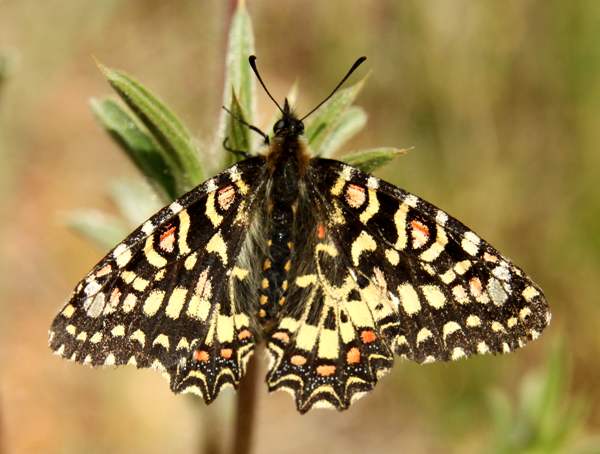
The Southern Festoon, Zerynthia polyxena, is actually a more northern species, and its range overlaps with that of the Southern Festoon only in the south of France.
Lifecycle
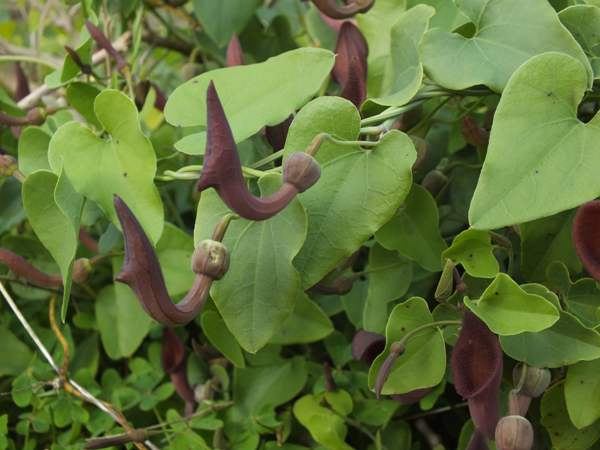
The larval foodplants used by the Spanish Festoon are various Aristolochia species. In the Algarve we find them in areas where Aristolochia baetica grows - see picture, left. This remarkable plant goes by the common name of Dutchman's Pipe.
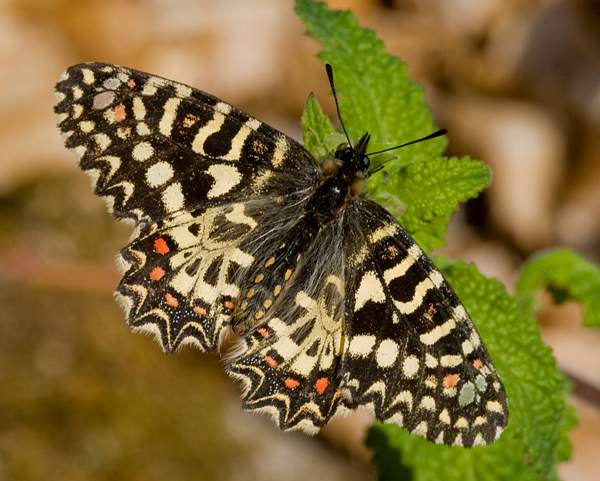
Adults are on the wing mainly in April and May, although there have been reports of an autumn brood in some areas; they fly fairly slowly over herb-rich grassland, pausing briefly to take nectar from wildflowers.
On bright spring days we have seen them resting with open wings on leaves of track-side shrubs and occasionally also on the bare surfaces of stony woodland tracks.
Studying butterflies and moths...
Excited at the prospect of flyfishing? So are we, and we're pretty sure you would find the Winding River Mystery trilogy of action-packed thrillers gripping reading too. Dead Drift, Dead Cert, and Dead End are Pat O'Reilly's latest river-and-flyfishing based novels, and now they are available in ebook format. Full details on our website here...
Buy each book for just £4.96 on Amazon...
Please Help Us: If you have found this information interesting and useful, please consider helping to keep First Nature online by making a small donation towards the web hosting and internet costs.
Any donations over and above the essential running costs will help support the conservation work of Plantlife, the Rivers Trust and charitable botanic gardens - as do author royalties and publisher proceeds from books by Pat and Sue.
